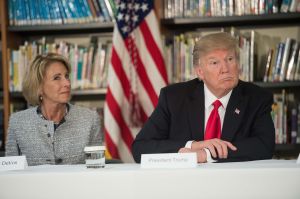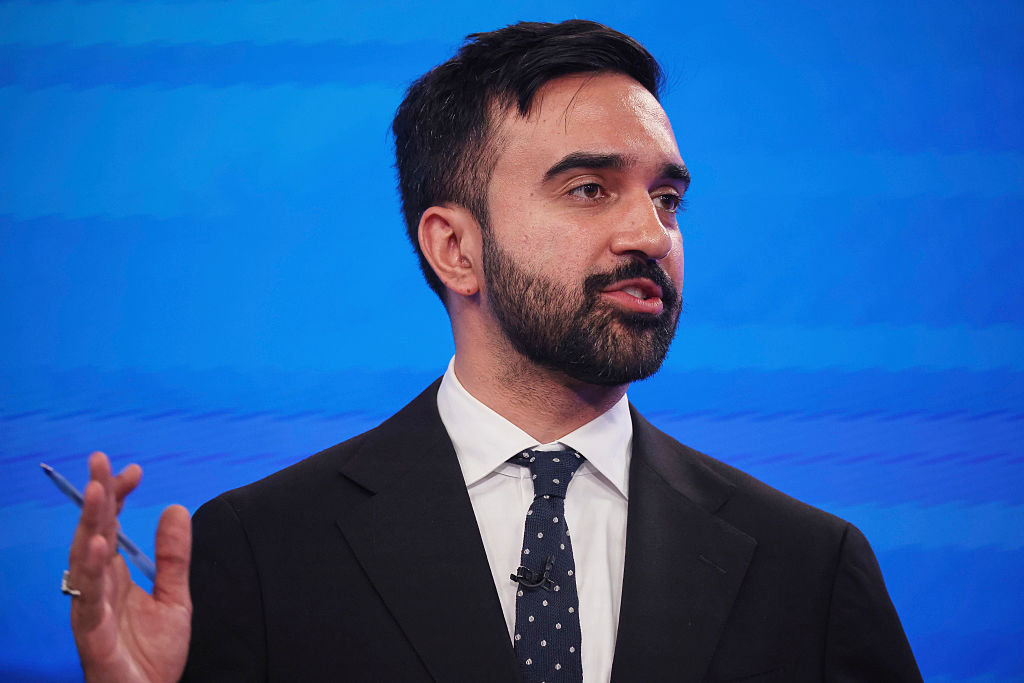School Choice Explained
There’s a lot of discussion lately about school choice. President Donald Trump and Education Secretary Betsy DeVos are staunch advocates of school choice with an agenda to expand programs nationwide. At the same time, the Black community is sharply divided on the issue. So, what exactly is school choice?
At its core, school choice is about giving parents, particularly low-income families, options to education their children. It comes down to a menu—that includes charter, magnet or private schools, as well as homeschooling—of alternatives to traditional neighborhood public schools. Before we go any further, let’s break down these options.

Source: fstop123 / Getty
Magnet schools specialize in specific fields, such as the arts or science, and attract students from multiple districts, and tend to promote racial and socio-economic integration.
Charter schools are publicly funded but run independently by nonprofits or for-profit companies. These types of schools operate in at least 42 states and the District of Columbia, which has the only federally funded charter school program.
School choice also includes open enrollment policies, which is the option to send a child to any traditional public school in or outside of the student’s school district. Under this type of policy, some states mandate student transfers from low-performing school districts.
Vouchers (which go by other names, such as scholarships) are the engines that enable school choice for many parents. States finance voucher programs with public funds that would otherwise go to traditional public schools. In some states, parents can also use vouchers for private or religious schools.

Source: NICHOLAS KAMM / Getty
Federal School Choice Policy
On the presidential campaign trail, Trump announced a $20 billion school choice plan. He promised to expand school choice by sending block grants to states, which they would use to finance voucher programs, Politico reported.
Once he became president, Trump urged Congress to pass an education bill that would expand school choice, especially for children of color from low-income families.
“These families should be free to choose the public, private, charter, magnet, religious or home school that is right for them,” he told a joint session of Congress, The New York Times reported.
The president and his education secretary are exploring ways to enable states to fund their voucher programs, such as offering tax credits to corporations and individuals who donate to education nonprofits that offer scholarships, according to The Times.

Source: FatCamera / Getty
Arguments In Favor Of School Choice
One key argument proponents of school choice make is that kids stuck in failing public schools should have the opportunity to attend a better school. School vouchers, they say, enable low-income parents to open the door to a better future for their children.
School choice advocates also argue that competition from charter, magnet and private schools would ultimately improve the public school system. Competition, they contend, would inspire innovation.
This group also maintains that school choice is a desegregation tool. More than six decades after Brown v. Board of Education, students of color remain largely concentrated in low-performing urban schools, located in high-poverty neighborhoods. Giving parents a choice offers opportunities for children of different races and socio-economic backgrounds to sit together in the same classrooms.
Arguments Against School Choice
Opponents of school choice say it is not a real solution to failing schools. Vouches divert public funding that would otherwise go to under-resourced traditional public schools, which continue to educate the clear majority of students.
They also argue that many of the alternatives to public schools are unaccountable. Public school boards, comprised of elected members, must answer to the community. Unlike private and most charter school directors, school boards must be transparent in their decision making and accountable to voters.
Moreover, opponents contend that voucher programs only offer the illusion of choice. Voucher schools can choose not to accept certain students. Indeed, some charter and private schools turn away students they believe would lower test scores at their school, they point out.

Source: asiseeit / Getty
How Successful Are Charter Schools?
The jury is still out on how well charter schools educate students compared to traditional public schools. On one hand, charter and magnet schools represent nine of the top 10 public high schools in the country, according to the new annual U.S. News & World Report rankings.
On the other hand, a wave of research shows that school vouchers are failing to achieve their promise of closing the academic achievement gap. Most recently, a U.S. Education Department study of the District of Columbia’s school voucher program found that many students who received vouchers to attend charter schools scored lower on standardized tests than students who remained in traditional public schools.
SOURCE: Politico, New York Times
SEE ALSO:
NAACP Approves Resolution Calling For Moratorium On Charter School Expansion
Watch NewsOne Now Special: Is School Choice The Black Choice?
















